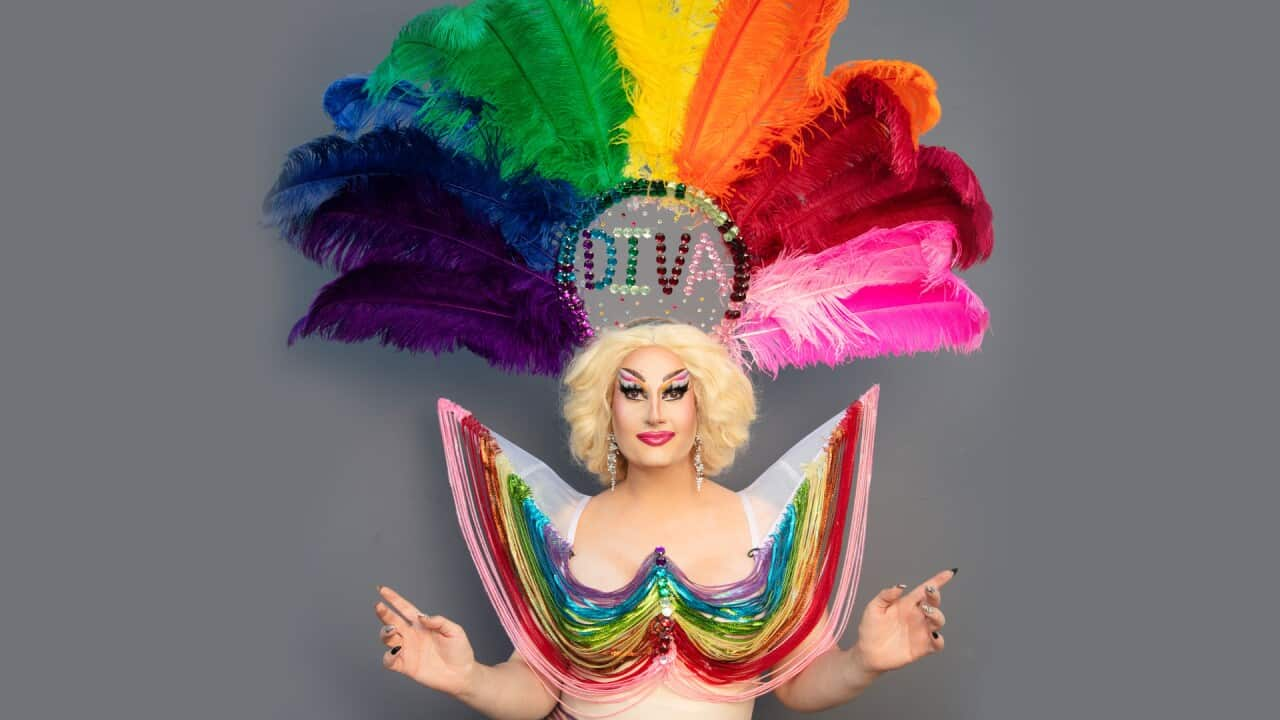Sitting in front of a mirror in his drag room, Serge Koukezian is putting on makeup and a wig getting ready to transform into his stage persona, Diva Beirut.
“Diva is a drag queen. She is queer. She is a plus-size queen,” the 25-year-old costume designer says. “She does lip-syncing, impersonation, oriental dancing, and comedy.”
The Middle East remains a culturally conservative region with strong religious authority. In Lebanon, the underground drag scene has flourished amid political and economic crises and despite government attempts to restrict the rights of LGBTIQ+ people.
Like many Lebanese drag performers of today, Koukezian grew up admiring Bassem Feghali, a Lebanese comedian who rose to fame in the 2000s by impersonating female Arab singers. He has also drawn inspiration from western artists such as American Idol star Todrick Hall. Diva made a parody of Hall’s hit song Nails, Hair, Hips Heels.
Koukezian made his first stage appearance as Diva in 2018 when he entered the inaugural Beirut Grand Ball, a competition for drag queens. At the time, the local drag scene had few performers, he recalls. And the Grand Ball was a debut night for many drag queens.
“When I started in drag, it was a little bit scary. Not everyone even in the queer community understood what drag was and accepted what we were doing,” Koukezian says.
But over the years, his confidence grew as did the community’s knowledge of drag and his own experience.
It took time to develop the unique, Arabic style of drag, he says.
“At the start, we didn’t have [a point of] reference. We were the first doing it here. We couldn’t just copy [US drag queen] RuPaul because we have our own culture and tradition.”
His family, too, came to understand and accept his artistic expression.
“They used to say it was a phase. But now they see that I have fans, that people look up to me. And it’s a job, not just fun,” he says. “When you have the family support, it makes things better.”

Serge Koukezian is transforming into drag queen Diva Beirut. Credit: SBS Dateline
Homosexuality isn’t illegal in Lebanon, but the country’s penal code prohibits sexual relations that ‘contradict the laws of nature’. And the law has been arbitrarily used to persecute LGBTIQ+ people.
In 2019, the organiser of Pride Week in Beirut was arrested on charges of ‘incitement to immorality.’ And last year, the country’s interior ministry ordered a ban on events ‘promoting sexual perversion.’ A wave of anti-LGBTIQ+ hate speech, including from religious groups, followed, and security forces cracked down on several LGBTIQ+ events.
The crackdown has made performers such as Koukezian worried for their safety.
In Europe, where he frequently travels to perform, he says he can freely walk the streets or ride in a taxi in his drag costume. But in Lebanon, he changes into regular clothes when going to and from venues. Drag entertainers are also not protected from abuse, threats, and hate speech.
“I don’t want equality now. I want my safety first because there’s no equality between women and men in the Middle East and in Lebanon, let alone for us,” he says.
“I don’t want to hide myself. I’m a drag queen. I’m not doing anything wrong. I’m doing art, and I’m going to keep doing it.”

Serge Koukezian started doing drag in 2018. Since then, he says his confidence grew as did people's understanding of drag as a form of art. But it's still not safe to be a queer person and a drag performer in Lebanon. Credit: SBS Dateline
This freedom of drag entertainment, however relative, is something that is not available in other Arab countries.
Koukezian says he has a lot of followers from Iraq, Egypt, and Saudi Arabia. And in some way, he feels the responsibility to the suppressed queer communities across the region.
“The Arab world isn’t a place where you can be free or where you can be whoever you want,” Koukezian says.
“But someone has to be the first. We are the first doing drag in the Arab world, and we’re not going to stop.”











